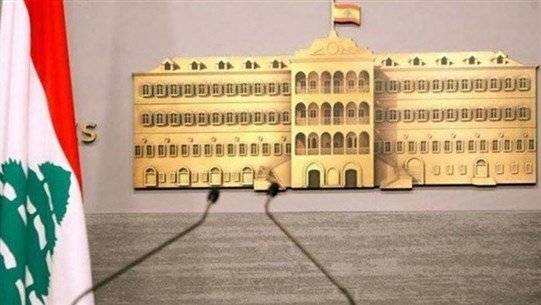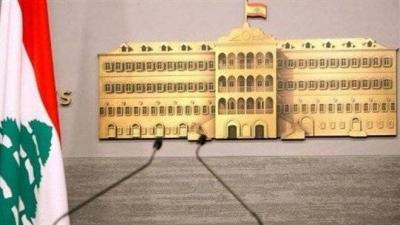Thus, without any preambles, consultations for cabinet formation have revved up again after rounds of accusations and political “insults” exchanged between the two presidencies—the first, along with the Aounist team, and the third—to meet again on the basis of revitalizing the “worn-out” government in the last days of the term... as if nothing had happened between them. During their last meeting, President Michel Aoun and the designated Prime Minister Najib Mikati exchanged “government greetings,” through their initial understanding to finalize the cabinet formation file as soon as Mikati returns from his foreign trip, which will take him to New York. He jokingly told journalists that he wouldn’t leave Baabda Palace without announcing the decrees of the new government.
Theoretically, the atmosphere has become positive. At least that’s what the positions of the concerned teams indicate. The two men decided to move forward in presenting the last government of President Michel Aoun, based on reviving the caretaker government after making a limited set of changes involving a Shia minister (Finance Minister Youssef Khalil), a Sunni minister (Economy Minister Amin Salameh), a Druze minister (Minister of Displacement Issam Sharaf al-Din), and a Christian minister to be determined by the President (it is rumored that it could be Tourism Minister Walid Nassar).
The repair equation, rather than expansion, means that the proposal which the Aounist team and the President have fought and continue to fight for—to supplement the government with six ministers representing the political parties directly—has been set aside after the direct objection announced by Parliament Speaker Nabih Berri in his latest speech, ruling out the idea of including political ministers in a government of specialists.
Theoretically, the next round of consultations between President Aoun and Mikati should be the last to finalize new names, especially after the direct intervention of Hezbollah between the two sides, pushing to expedite the formation process so as not to open the constitutional hell of presidential vacancy that could undermine what remains of the crumbling state structure.
However, there are those who are treating the good intentions expressed by both teams in recent days with much skepticism, including Hezbollah, where some of its officials prefer not to show any enthusiasm or optimism pending the expected meeting, given the bitter experiences that have always proven to be misleading, leaving rounds of pleasantries to end up with nothing. Some observers say that both teams are well aware that the issue is not about the name of the Economy Minister or the Minister of Displacement but lies in the balances of the government amidst the presidential vacancy and the presidential file itself. Consequently, neglect remained the prevailing attitude, leading to public clashes.
Thus, the submission of both the Aounist team and the designated Prime Minister to the will of the assignment remains questionable, considering that nothing has changed since a few weeks ago until they decide to proceed with the cabinet formation file without significant obstacles.
According to these observers, the only new variable is Mikati’s fear of sinking into the quagmire of constitutional ambiguity regarding the legitimacy of his government if the new cabinet does not see the light and the executive authority is limited to the caretaker government. They point out that it seems that the campaign of intimidation and threats led by the President and the head of the Free Patriotic Movement, Gebran Bassil, warning against the consequences of handing over the powers of the President to an incomplete cabinet constitutionally, has had an effect and prompted Mikati to reconsider his calculations, even though he had been acting on the premise that nature abhors a vacuum, and thus his government would be dealt with as the executive authority even if it were a caretaker government.
As for the calculations of the other parties, notably the Aounist team, they remain unchanged. Thus, it can be said that the cabinet formation train is on track. However, this is not the first time the engines have been revved up, only to find that they resemble air wheels, producing nothing. Therefore, it is essential to wait for Mikati’s return to Beirut to build on what’s necessary.




